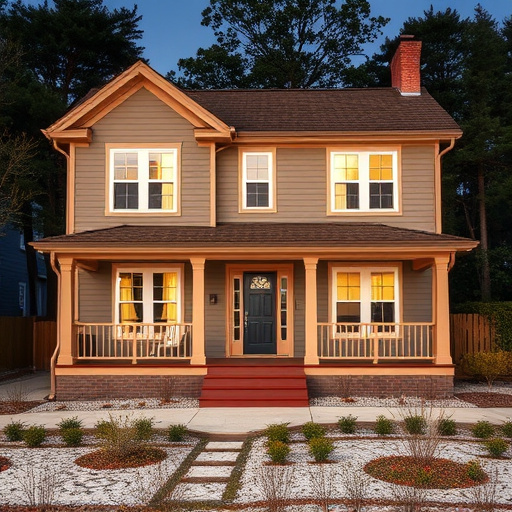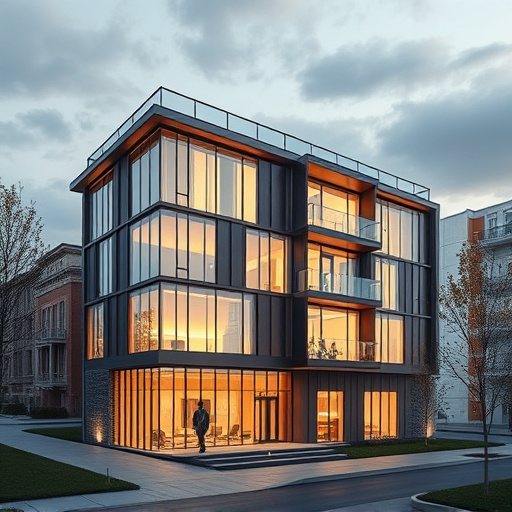Commercial renovation permits are essential for updating business spaces safely and legally, with requirements varying by location and project scope. Understanding local building codes, staying informed about regulations, and meticulous record-keeping ensure compliance, prevent issues, and facilitate smoother projects for offices, stores, or restaurants.
Commercial renovation is a complex process requiring meticulous planning and adherence to local regulations. This comprehensive guide delves into the essential aspects of navigating commercial renovation permits and compliance, offering invaluable insights for successful projects. From understanding permit requirements to mastering building codes and maintaining thorough records, these steps are crucial for avoiding delays and ensuring smooth operations during transformations of any scale.
- Understanding Commercial Renovation Permits: Essentials to Know
- Navigating Local Building Codes and Regulations for Compliance
- Documenting and Maintaining Records for Smooth Renovations
Understanding Commercial Renovation Permits: Essentials to Know

Commercial renovation permits are a crucial aspect of transforming business spaces. Before breaking ground on any commercial project, from minor upgrades to major overhauls like home additions or whole house remodels, understanding and securing the necessary permits is essential. These permits ensure that renovations adhere to local building codes, safety standards, and zoning regulations, guaranteeing both the integrity of the structure and the well-being of occupants.
Gaining insight into specific permit requirements varies by location, project scope, and type of renovation. For instance, small-scale alterations like updating fixtures or rearranging functional spaces may only require notice, while extensive construction necessitates detailed plans reviewed by building inspectors. Staying informed about these processes allows for smoother projects, avoids legal issues, and ensures that your commercial space is transformed safely and in compliance with local regulations.
Navigating Local Building Codes and Regulations for Compliance

Navigating local building codes and regulations is a crucial step in any commercial renovation project. Each jurisdiction has its own set of rules and standards that must be followed to ensure safety, functionality, and aesthetic appeal in commercial spaces. For instance, regulations related to fire safety, accessibility, and energy efficiency vary widely from one city to another. Therefore, it’s essential for renovators to thoroughly understand these codes before breaking ground on any commercial renovation project.
Failure to comply with local building codes can lead to significant penalties, delays, or even the need to redo parts of the work. Renovators should also be aware of specific requirements for various types of commercial spaces, such as office buildings, retail stores, or restaurants, which often have unique considerations for things like signage, lighting, and food storage areas. Whether it’s a bathroom remodel, kitchen remodel, or complete home transformations, adhering to these regulations is key to ensuring the project goes smoothly and meets all necessary safety standards.
Documenting and Maintaining Records for Smooth Renovations

Renovation projects, especially in commercial spaces, require meticulous record-keeping for a seamless process and future reference. Documenting every step is crucial, from initial design plans to final inspections. This includes detailed records of permits, contracts, material specifications, and work progress. Well-organized files ensure that all parties involved have access to critical information when needed.
Maintaining comprehensive records also facilitates compliance with local building codes and regulations. It allows contractors and property owners to prove adherence to safety standards, especially in areas like kitchen and bath renovations or other home improvement services. Proper documentation can be a game-changer during permit reviews or future modifications, ensuring smooth sailing for any commercial renovation project.
Commercial renovation projects require a thorough understanding of permits, compliance, and record-keeping. By navigating local building codes and regulations, ensuring proper documentation, and maintaining meticulous records, businesses can streamline their renovation processes and avoid costly delays or penalties. These essentials are vital for successful and compliant commercial renovation, enabling entrepreneurs to transform spaces while adhering to essential standards.














